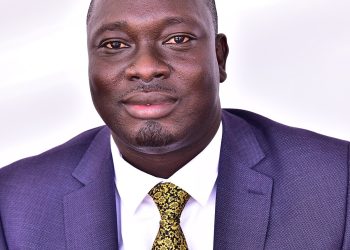Opposition MPs have called for abolition of the advanced level (A’level) of education, saying it is unnecessary. They want A’level to be replaced by vocational and tertiary education. In their response to the National Budget Framework Paper for the financial years 2019/2020-2023/2024, Opposition MPs, led by their leader in Parliament, Betty Aol Ocan, said the education system should adopt a 7-4-2-3 model, where one spends seven years in primary school, four years in secondary school, two years at elementary level for one’s area of interest and then three years for a degree or diploma award.
“The education system inherited from the colonial times that consisted of three stages of seven years in primary, six years in secondary and three years at university was tailored to produce clerical officers, not industrialists,”
reads the report.
The Opposition said if the new system is adopted and implemented, more skilled and efficient manpower for the labour force will be produced. However, educationists disagree, arguing that A’level is an integral part of education in terms of preparing students for university education and talent development. Yusuf Nsubuga, the former director of basic and secondary school education, explained that it is at A’level that students identify their talents by choosing to study subjects they are competent in.
He said it is also at this for university education through limiting the number of subjects and focusing on personal interests. Nsubuga said according to education psychologists, children who go to school at a very young age may not have the mental maturity required by universities by the end of O’level.
“I agree with them that our education system is longer than necessary. If somebody has attended pre-primary, seven years of primary education is unnecessarily long. If we could remove the unnecessary materials in O’level, then it can be covered in just three years. So instead of scrapping A’level, I would rather we reduce one year from primary and one year from secondary school,” he said.
Nsubuga
Robinson Nsumba-Lyazi, who is also a former director for basic and secondary school education, said the current system provides for vocational and technical education.
“When you read the education newspaper, it provides for a proposal where some schools could have options for comprehensive education, which involves technical or vocational education,” he said.
Nsumba-Lyazi explained that for a school to take on comprehensive education, it must have enough facilities to be able to teach vocational education alongside pure academics. He noted that the current challenge the country faces is a lack of facilities to have this kind of education.
“The investment is quite high, so you cannot go full blast as was done in Germany. The best option is to have general education for some schools and comprehensive education for others, giving a mix of both academic and vocational,” Nsumba-Lyazie said.
He noted that comprehensive education aims at creating a balance so that the country has skilled labour in key areas. Agrey Kibenge, the undersecretary in the education ministry, said abolishing A’level is not the best remedy for the problems facing Uganda’s education system, but rather the solution lies in addressing the content delivery approach vis-àvis the competencies one should have at the end of the course.
“Even if we introduced elementary level, if the content delivery approach does not lead you to what you want to be, then there will be no difference,” Kibenge said.
He said currently, there is an ongoing review of the secondary education curriculum aimed at addressing the concerns of Ugandans regarding the relevance of the content that their children are taught. Kibenge noted that the relevance of a good education system is judged by four learning outcomes, which include learning to know, learning to do, learning to be and learning to live and co-exist not only with nature, but also with other human beings.
“We are not paying adequate emphasis to all these learning outcomes. Schools and parents are only focusing on knowledge to pass examinations and we need to address this,” he said.
This year, the Kenya government will introduce a new education model to replace the 32-year-old 8-4- 4 system. The current system of education starts with eight years of primary school, followed by four years each for secondary school and university. This is being replaced with the 2-6-3-3-3 curriculum that reportedly places emphasis on the formative years of learning. The learners will spend two years in pre-primary and six in primary. They will also be evaluated through continuous assessment tests on the skills acquired.
































































